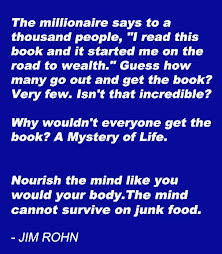 Albert Einstein was born at Ulm, in Württemberg, Germany, on March 14, 1879 and died on April 18, 1955 at Princeton, New Jersey.
Albert Einstein was born at Ulm, in Württemberg, Germany, on March 14, 1879 and died on April 18, 1955 at Princeton, New Jersey.Imagination is more important than knowledge. Knowledge is limited. Imagination encircles the world.
It's not that I'm so smart, it's just that I stay with problems longer.
I have little patience with scientists who take a board of wood, look for its thinnest part, and drill a great number of holes where drilling is easy.
If A is a success in life, then A equals x plus y plus z. Work is x; y is play; and z is keeping your mouth shut.
Only a life lived for others is worth living.
Out of clutter, find simplicity. From discord, find harmony. In the middle of difficulty lies opportunity.
The most beautiful thing we can experience is the mysterious. It is the source of all true art and science. He to whom this emotion is a stranger, who can no longer pause to wonder and stand rapt in awe, is as good as dead: His eyes are closed.
The world is a dangerous place, not because of those who do evil, but because of those who look on and do nothing.
I am enough of an artist to draw freely upon my imagination. Imagination is more important than knowledge. Knowledge is limited. Imagination encircles the world.
Perfections of means and confusion of goals seem-in my opinion-to characterize our age.
Einstein always appeared to have a clear view of the problems of physics and the determination to solve them. He had a strategy of his own and was able to visualize the main stages on the way to his goal. He regarded his major achievements as mere stepping-stones for the next advance.
Einstein's researches are, of course, well chronicled and his more important works include Special Theory of Relativity (1905), Relativity (English translations, 1920 and 1950), General Theory of Relativity (1916), Investigations on Theory of Brownian Movement (1926), and The Evolution of Physics (1938). Among his non-scientific works, About Zionism (1930), Why War? (1933), My Philosophy (1934), and Out of My Later Years (1950) are perhaps the most important.
Albert Einstein received honorary doctorate degrees in science, medicine and philosophy from many European and American universities. During the 1920's he lectured in Europe, America and the Far East and he was awarded Fellowships or Memberships of all the leading scientific academies throughout the world. He gained numerous awards in recognition of his work, including the Copley Medal of the Royal Society of London in 1925, and the Franklin Medal of the Franklin Institute in 1935.








No comments:
Post a Comment